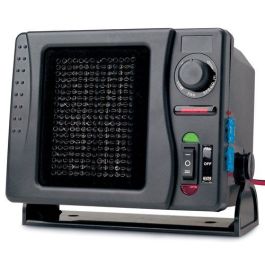Hi all! So yes, Richter level 7 earthquake at least. I need to plan an underfloor heating for a 4x4 expedition/overlanding off-road vehicle, and it has to be able to withstand hundreds of miles of Australian corrugated roads and many thousands more of very bumpy roads of all sorts. A shaky floor is an uncommon situation for an installer, but I hope that your combined professional intuition about what could work for this scenario can guide me in the right direction.

I would like to use something like these panels for the pipping as it has a very low profile (18mm), but I am open to alternatives.

I have no idea how to plan the layers so everything stays in place for many years. Just concerned about the layers and materials for now and whether I should glue stuff or not. Maybe use a weak glue to keep things in place but can also be peeled off if necessary?
Working with a 10m2 (100sq.ft.) floor, this is my plan:
1 - Glue the panels to the subfloor (subfloor made of GRP panel). Yes/no?
2 - Run the pipping
3 - 2mm aluminum sheet on top of the panels to add rigidity and diffuse heat (would act as "UFH compatible underlay" hopefully). Yes/no? Glued or not?
4- Vinyl flooring style LVP or EVP if I can find an EVP that's 100% water proof. Thickness you recommend? Clipping type (are Uniclic strong enough or you recommend something else)? Glued to the aluminum or previous layers or not?
I do appreciate any help with this. Hope you all have a great day.
Raul
I would like to use something like these panels for the pipping as it has a very low profile (18mm), but I am open to alternatives.
I have no idea how to plan the layers so everything stays in place for many years. Just concerned about the layers and materials for now and whether I should glue stuff or not. Maybe use a weak glue to keep things in place but can also be peeled off if necessary?
Working with a 10m2 (100sq.ft.) floor, this is my plan:
1 - Glue the panels to the subfloor (subfloor made of GRP panel). Yes/no?
2 - Run the pipping
3 - 2mm aluminum sheet on top of the panels to add rigidity and diffuse heat (would act as "UFH compatible underlay" hopefully). Yes/no? Glued or not?
4- Vinyl flooring style LVP or EVP if I can find an EVP that's 100% water proof. Thickness you recommend? Clipping type (are Uniclic strong enough or you recommend something else)? Glued to the aluminum or previous layers or not?
I do appreciate any help with this. Hope you all have a great day.
Raul



 No problem at all, opinions against UFH are also useful to me at this stage. I am just here to learn, not change people's minds, but I'll address your points anyway tho, even if I go quite off topic, no need to read it or follow up, but I find all this overlanding stuff interesting and some other people might too so here it goes
No problem at all, opinions against UFH are also useful to me at this stage. I am just here to learn, not change people's minds, but I'll address your points anyway tho, even if I go quite off topic, no need to read it or follow up, but I find all this overlanding stuff interesting and some other people might too so here it goes 
